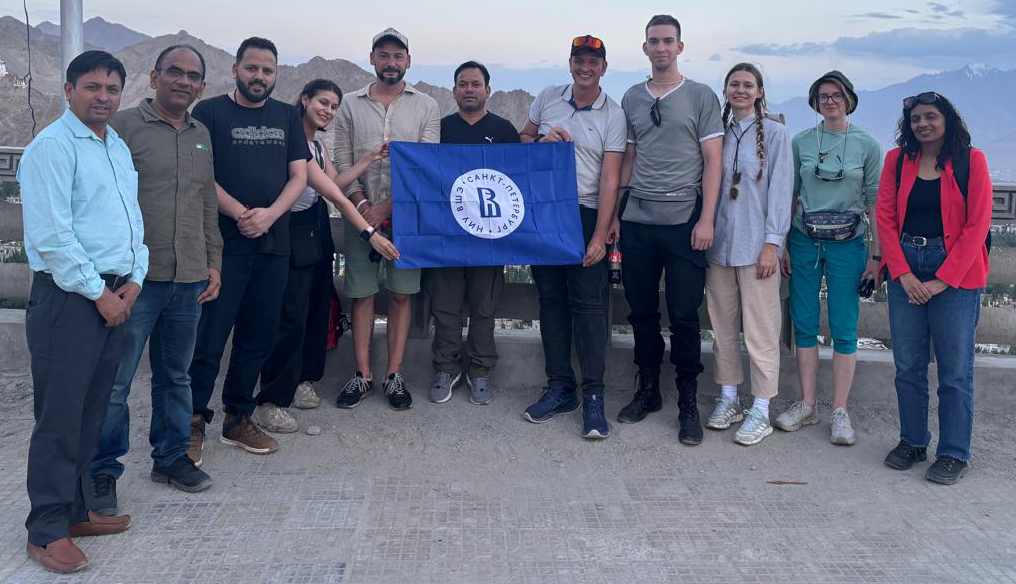 Early Times Report Early Times Report
LADAKH, July 8: 3rd International Expedition to the Western Himalayas kicks off with International Summer School on "Confronting the Climate Challenge in the Indian Himalayas: Pathways to Resilience"
In a pioneering step towards addressing climate change in fragile mountain ecosystems, the Department of Environmental Studies, PGDAV (M) College, University of Delhi, in collaboration with the Centre for Interdisciplinary Studies on Mountain and Hill Environment (CISMHE), University of Delhi, and the Department of Earth Sciences, Institute of Mountain Environment, Bhaderwah Campus, University of Jammu, has launched the 3rd International Summer School and Expedition from July 5-15, 2025, in the Western Himalayas, with a dedicated focus on Ladakh.
This on-field academic initiative, supported by international scholars including a delegation from HSE University, Saint Petersburg, Russia, aims to develop robust, community-led climate resilience models. Participants include eminent professors, climate researchers, and policy experts from India and Russia who are working closely with local communities to examine firsthand the cascading impacts of climate change in the Indian Himalayan Region (IHR)-one of the most ecologically sensitive zones in the world.
Key concerns being addressed include rising temperatures, accelerated glacial melt, erratic precipitation, and increasing frequency of extreme weather events. The summer school is particularly focusing on water insecurity, threats to traditional livelihoods, and the tensions between unregulated development and environmental preservation in the region.
Prof. Rahul Gupta, Rector of Bhaderwah Campus, University of Jammu, lauded the joint initiative, emphasizing the urgency of research-based policymaking in ecologically fragile zones like Ladakh. "Such collaborative outreach programmes are essential to inform governance frameworks and develop adaptive responses to climate challenges in mountainous areas," he said.
Prof. Darvinder Kumar, Principal of PGDAV College, has provided vital guidance in shaping the research component of the workshop. His focus on grassroots data collection and statistical rigor ensures that the findings have both practical value and academic depth.
Prof. Vandana Mishra, Director of CISMHE, underlined three major gains of this Indo-Russian collaboration: Real-world research on resilience, sustainable farming, and traditional governance; Field-based data for improved strategies in climate adaptation, biodiversity, and water management; and A strengthened academic bridge between India and Russia through joint research, student exchanges, and collaborative funding.
Prof. Alexander, Dean of the School of Social Sciences, HSE University, Russia, reiterated the importance of incorporating traditional knowledge with scientific methodologies to formulate sustainable policy interventions in climate-vulnerable regions like Ladakh.
|
